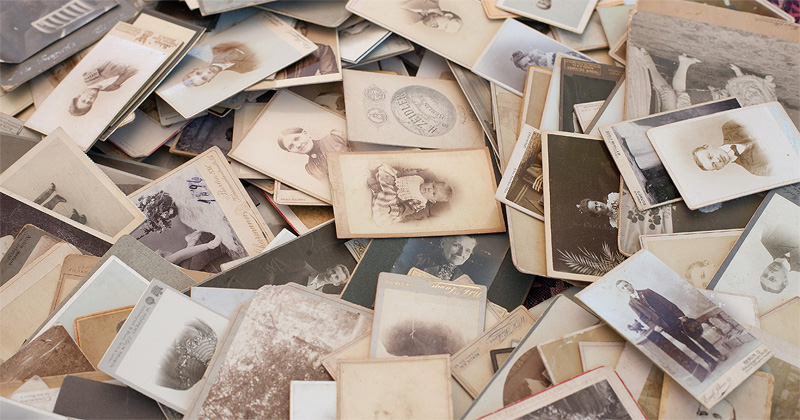Consider this a public service announcement: digging around in boxes in your grandma’s house brings certain risks. You might, for example, come upon an old newspaper clipping detailing the discovery of old diaries that document the sex life of your great-great-great-great grandfather. Then you’ll forever know that on March 3, 1819, someone named Celia put her hand in his pants. That he snuck into a closet to have sex with a “CR” on April 19, 1853. That he “lay Betsy” on February 6, 1815. And all the while, your grandma might be standing over your shoulder, smirking while you read. This is purely hypothetical, mind you. Anything could be waiting in those boxes.
When I learned about my diary-keeping, philandering forefather at Grandma’s, I knew I’d write about him. I didn’t know it would become a roughly decade-long process of writing a book. I am a slow writer naturally, but the difficulty in writing a book about my ancestor was that everything was messy—the research, his life, 19th-century America. Me. I struggled to find a shape for a long-form project about this long-dead man who’d left 50 years of coded diaries in his wake. I knew the book wouldn’t be a straight-on biography. I didn’t want to lift from his life to craft a novel. I wanted to write something that embraced the mess.
The writing process for Cipher involved a lot of experimentation. A lot of failure. It also involved a lot of searching for models so that I could figure a way forward. I found a handful of beautifully complicated books about complicated family histories (some of their stories emerging from boxes, too)—and then I stole from them mercilessly.
*
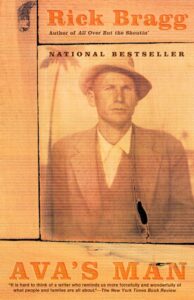
Ava’s Man, Rick Bragg
I loved All Over But the Shoutin’, Rick Bragg’s first family memoir about growing up dirt-poor in Alabama. Ava’s Man picks up the story, in some ways, but it follows Charlie Bundrum—Bragg’s grandfather. Bundrum died the year before Bragg was born—”I have never forgiven him for that”—so the narrative is built from oral histories and letters and other research. Bragg is present in the book—both as the storyteller and as the person hearing the family stories—so it never feels exactly like a traditional biography. At times, the narration becomes such a close third-person that it reads like fiction and in other moments, Bragg steps back to tell the story in sweeping stretches that account for regional and national history. I learned a lot from Ava’s Man‘s seamless merging of family history and regional research and oral storytelling, all with memoiristic stakes.
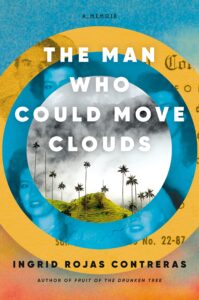
The Man Who Could Move Clouds: A Memoir, Ingrid Rojas Contreras
Like Ava’s Man, Rojas’ memoir partly tells the story of a dead grandfather. The book opens with amnesia—the author’s and her mother’s—and from this place of unknowing, Rojas starts to examine her family’s history in Colombia, especially her grandfather Nono’s life as a curandero (shaman). On a trip back to Colombia to exhume her grandfather’s remains (some family members had claimed he’d appeared to them in dreams and should be disinterred), she begins digging into this ancestry in earnest, stepping into the stories and myths and rumors that surround the past. As she recovers from her head injury, she tries to understand what the mysterious past means for her. The Man Who Could Move Clouds feels like a dream. Rojas moves from Colombian history to mythologies, from family stories to her own life. She resists chronology and lets the floating stories merge in due time. And like Bragg, she writes unabashedly about people who aren’t, as her mother says, “the type of people to be in the public record.”
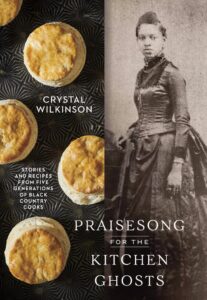
Praisesong for the Kitchen Ghosts, Crystal Wilkinson
Fittingly, one of the epigraphs in this book is from Rick Bragg: “I think it may be fine to live in the past if that is where your people have all disappeared to—if that is a place where things still make some kind of sense to you.” Wilkinson brings the past to the table in this book that is a memoir wrapped in a cookbook. Full of photographs of Wilkinson’s ancestors and the foods they passed down, the book delivers recipes—chicken and dumplings, sautéed fiddleheads, chess pie—but the throughline is stitched together by the people that Wilkinson brings to life through bits of story. Five generations of Black Appalachians step into the haunted space of the kitchen, but Wilkinson considers not only the past but also what comes next. What of her kids and grandkids, what of do these recipes offer us in the world we’re making now? The book is a beautiful drawing together of family.
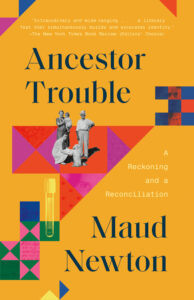
Ancestor Trouble: A Reckoning and a Reconciliation, Maud Newton
Newton’s heavily researched journey into her family’s past doesn’t shy away from dark secrets. Like the above books, the stakes are personal. Her obsession (her words) into genealogy starts close, with her estranged father, and she unspools the family past from there, in part to understand what led to the dysfunction of her childhood. She finds plenty in her research to account for the anxieties of today, and in a book that is organized like a patchwork quilt (as the cover prompts us to notice), she continually steps back from her own family to explore larger questions of inheritance and epigenetics and regional identities. The book is a marvel in its intensity, thoroughness, and honesty.
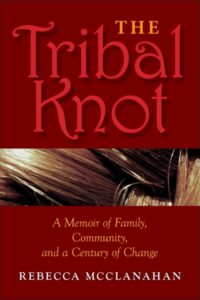
The Tribal Knot: A Memoir of Family, Community, and a Century of Change, Rebecca McClanahan
McClanahan’s book spans generations to unspool and then weave together family connections. Most remarkable about The Tribal Knot is its inclusion of family documents throughout the text. McClanahan examines the lives of women in her family—their relationships, their preoccupations, their struggles, their enduring presence—and much of this arrives in bits of letters uncovered from her research. She frames this “multigenerational memoir” within the Victorian practice of “hair art,” aiming to braid all the family stories together until she has a single strand.
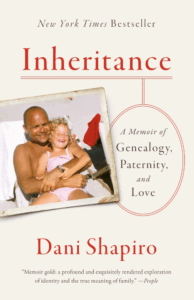
Inheritance: A Memoir of Genealogy, Paternity, and Love, Dani Shapiro
Shapiro’s memoir doesn’t reach back generations in its initial framing—she discovers through genetic testing that her father was not her biological father—but the explorations that follow are far-reaching. At the heart of her search is the age-old nature vs. nurture question, which then splinters into a thousand other questions about the stories we tell about ourselves. The book moves quickly, narrative-driven with relatively short chapters, and pieces together as a complicated and earnest origin story.
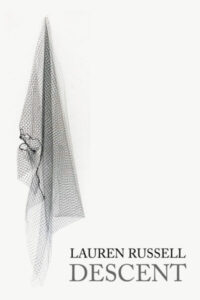
Descent, Lauren Russell
An outlier in this list—a poetry collection!—Russell’s book steps into all the empty spaces of family history. How do we fill in the gaps of what can never be known? In this case, we do so in verse. But not only in verse. This is a hybrid work of prose and image and poetry. Russell’s great-great grandfather, a captain in the Confederate Army, fathered nearly 20 children by enslaved women, leaving Russell to wonder about the lives leading to hers. She writes of silenced voices, like her enslaved great-great-great grandmother, and of family stories tucked out of sight. “I am a poet. I am not a historian,” Russell writes, but this collection is heavily researched, weighty in its documentation and expansive in its language. The writer John Keene called it “a chorus to portray a rich, Black American ancestral record.”
__________________________________
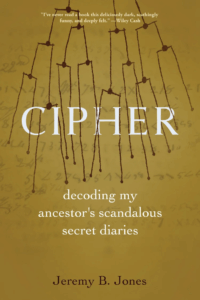
Cipher: Decoding My Ancestor’s Scandalous Secret Diaries by Jeremy B. Jones is available from Blair.
